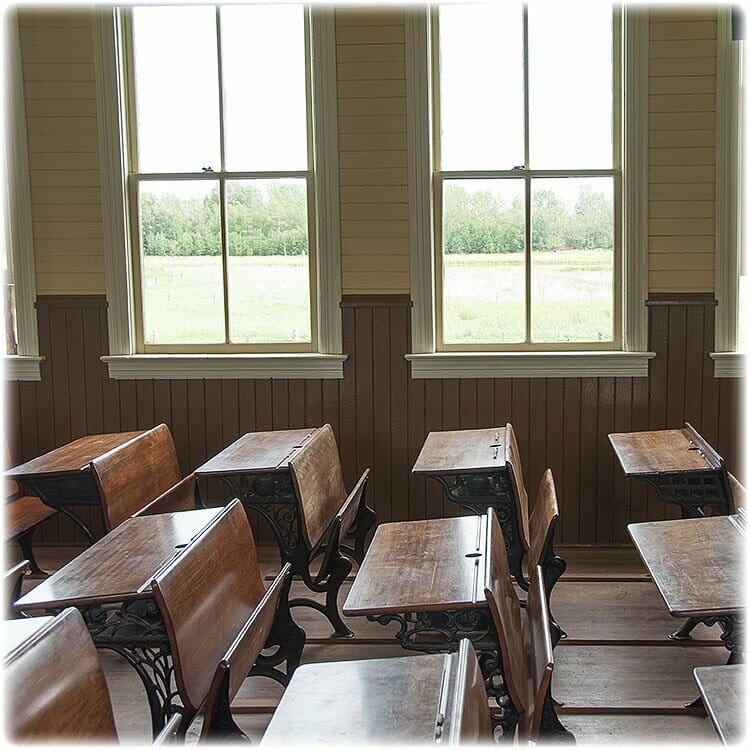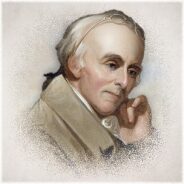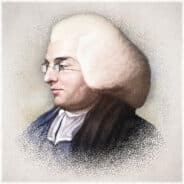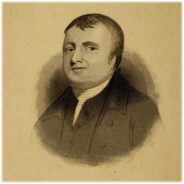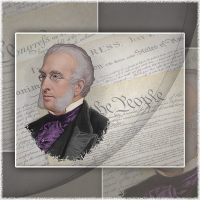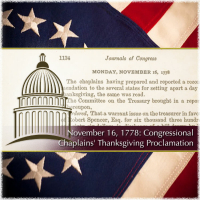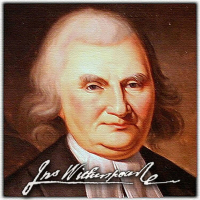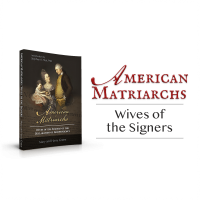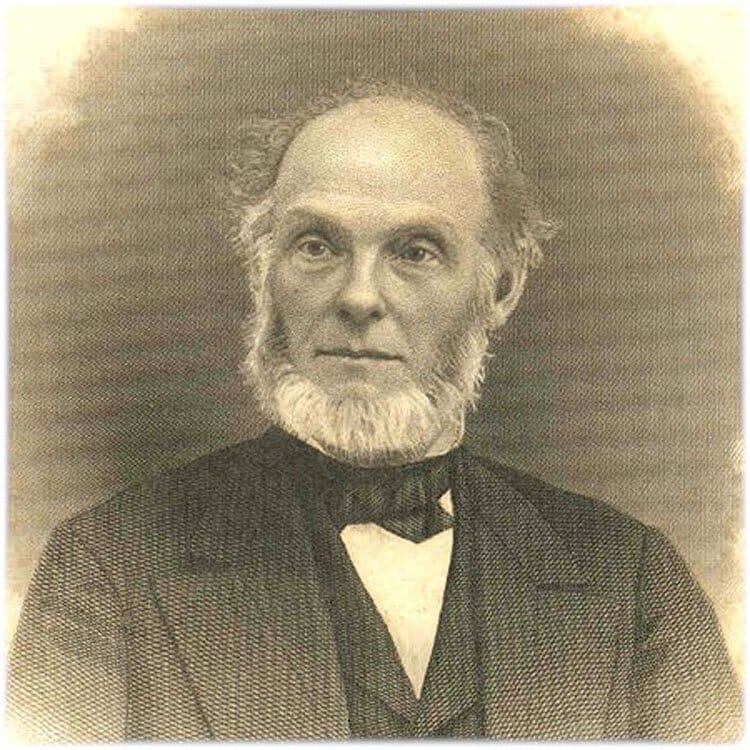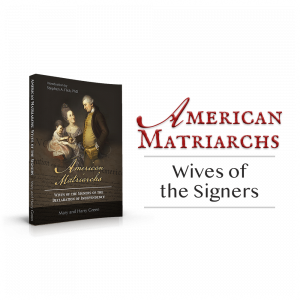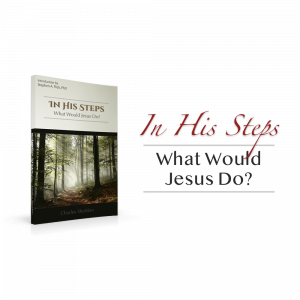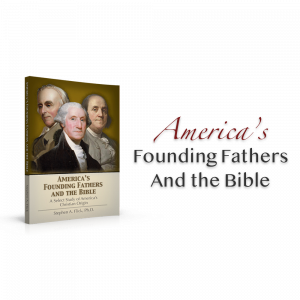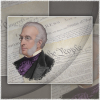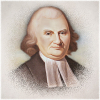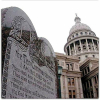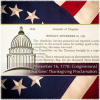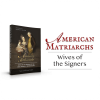On April 19, 1813, Dr. Benjamin Rush — one of America's Founding Fathers — passed into eternity at the age of sixty-seven. Along with George Washington and Benjamin Franklin, Benjamin Rush was regarded as one of the three most important Founding Fathers of America.[1] Though secularists incorrectly take advantage of Benjamin Franklin's and Thomas Jefferson's alleged rejection of Christianity, there is no opportunity for misinterpretation concerning one of the godliest and most deeply dedicated Christians among America's Founding Fathers, Dr. Benjamin Rush.
Dr. Rush is remembered as the "Father of American Medicine,"[2] and "The Father of Public Schools Under the Constitution,"[3] and like the overwhelming majority of the signers of the Declaration of Independence, Dr. Rush was opposed to slavery. As one of the first organizers of America's first anti-slavery society[4] he soon became a leader in the national abolition movement, which was primarily led by Christians.[5]
It is not true that America was founded upon secularism, but rather upon the influence of Christianity. The single greatest reason that America's Founding Fathers did not employ much religious or Christian terminology in national or federal legislation is because of the diversity of Christian opinions that existed among them. This fact is very evident from the very First Continental Congress when delegates were establishing the procedures and protocols of Congress.
The subject addressed in this article is discussed at greater length in A Defense of the Bible as a School Book. Christian Heritage Fellowship would be honored to work with individuals, businesses, churches, institutions, or organizations to help communicate the truth concerning the positive influence of the Christian faith by providing bulk pricing: Please contact us here... To purchase a limited quantity of this publication, please click: Purchase here...
On the second day of Congress, Samuel Adams, "Father of the American Revolution," said "he was no bigot [or denominational partisan], and could hear a prayer from any gentleman of piety and virtue, who was at the same time a friend to his country," and then proceeded to nominate Rev. Jacob Duche to open Congress with prayer. Following this suggestion, the Continental Congress offered the following resolution: "Resolved, That the Revd. Mr. Duche be desired to open the Congress tomorrow morning with prayers, at the Carpenter's Hall, at 9 o'clock."[6] Rev. Duche was the Anglican rector or pastor at Christ Church — "The Nation's Church" — and became Congress' first chaplain. Though eleven of the thirteen states originally had state churches, delegates to Congress as early as 1774 realized that hope of a unified national government would be dashed if any one denomination was perceived as dominating the entire nation.
Yet, America's Founding Fathers understood that Christian morality was necessary to good government. Congress issued prayer, thanksgiving, and fasting proclamations during and after the Revolution, when America had been established under the United States Constitution. The Founding Fathers understood that Christian morals and values alone could sustain America. One of the greatest demonstrations of this fact is provided in the following brief essay by Dr. Rush titled, A Defense of the Use of the Bible as a Schoolbook, Addressed To The Rev. Jeremy Belknap, Of Boston.
Because early America had very active ministers who believed King George III had violated God's law, they called for revolt against the King. For nearly a decade, ministers preached about ways that the King was violating the law of God as revealed in the Bible. Rev. Jeremy Belknap was among those ministers who taught that the King was violating God's laws in the way he was seeking to govern the American Colonies. In 1767, Rev. Belknap became the pastor of the Congregational Church in Dover, New Hampshire. Eight years later, in 1775, some units of the Dover militia were activated following the Battle of Lexington to support the American cause in the Siege of Boston. Rev. Belknap accompanied those militia units to Boston as chaplain to the New Hampshire troops engaged in the siege and remained with them through the next winter. It was to his friend, Rev. Belknap, that Dr. Rush addressed his essay concerning the need for America's youth to be trained in the teachings of the Bible. That essay has been republished and is now available through our store.
The Use of the Bible as a Schoolbook
The Use of the Bible as a Schoolbook
The Use of the Bible as a Schoolbook
The Use of the Bible as a Schoolbook
The Use of the Bible as a Schoolbook
The Use of the Bible as a Schoolbook
The Use of the Bible as a Schoolbook
The Use of the Bible as a Schoolbook
The Use of the Bible as a Schoolbook
The Use of the Bible as a Schoolbook
The Use of the Bible as a Schoolbook
The Use of the Bible as a Schoolbook
The Use of the Bible as a Schoolbook
The Use of the Bible as a Schoolbook
The Use of the Bible as a Schoolbook
The Use of the Bible as a Schoolbook
The Use of the Bible as a Schoolbook
The Use of the Bible as a Schoolbook
The Use of the Bible as a Schoolbook
The Use of the Bible as a Schoolbook
The Use of the Bible as a Schoolbook
The Use of the Bible as a Schoolbook
The Use of the Bible as a Schoolbook
The Use of the Bible as a Schoolbook
The Use of the Bible as a Schoolbook
The Use of the Bible as a Schoolbook
The Use of the Bible as a Schoolbook
The Use of the Bible as a Schoolbook
The Use of the Bible as a Schoolbook
The Use of the Bible as a Schoolbook
The Use of the Bible as a Schoolbook
The Use of the Bible as a Schoolbook
The Use of the Bible as a Schoolbook
The Use of the Bible as a Schoolbook
The Use of the Bible as a Schoolbook
The Use of the Bible as a Schoolbook
The Use of the Bible as a Schoolbook
The Use of the Bible as a Schoolbook
Podcast: 'The Use of the Bible as a Schoolbook,' by Dr. Benjamin Rush.

